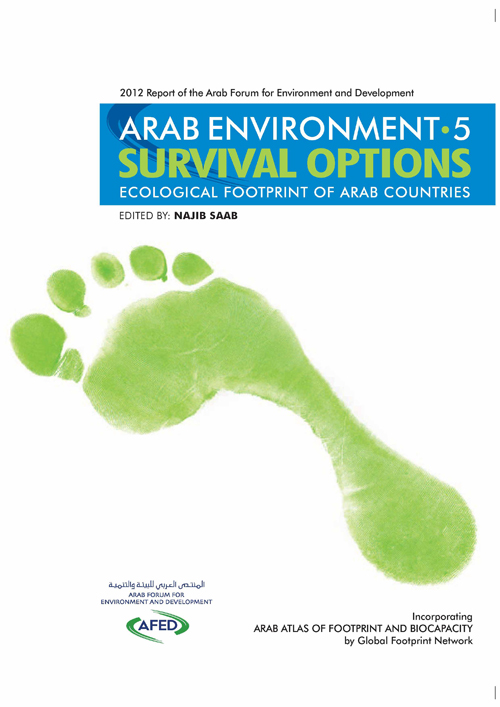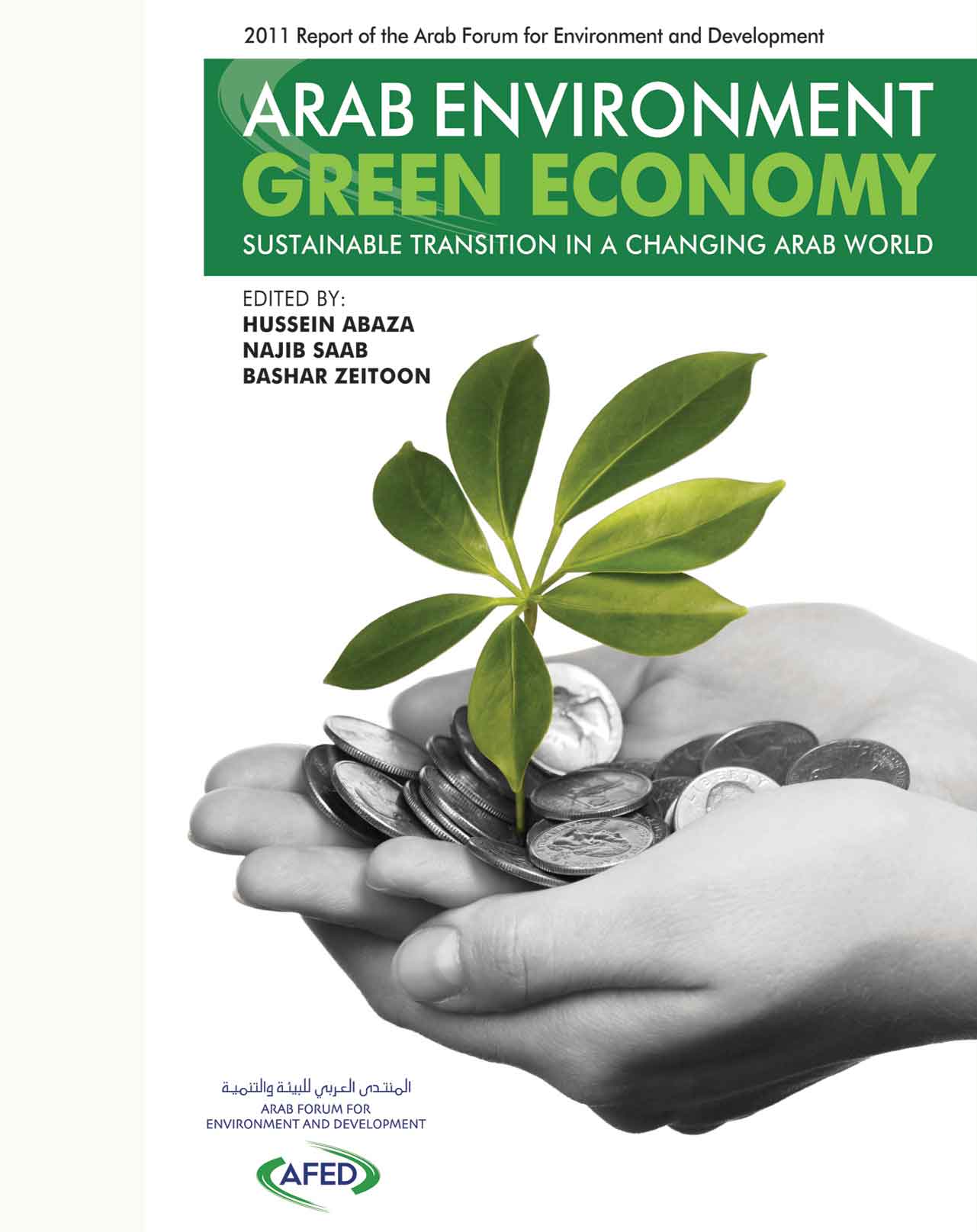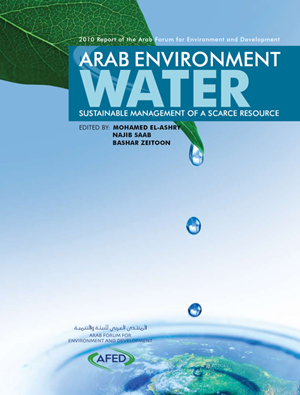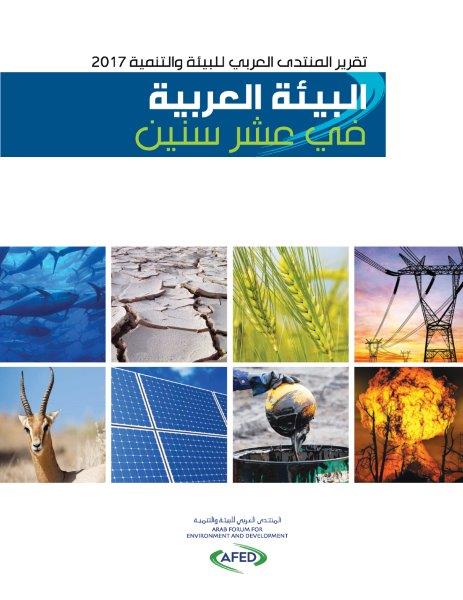| | Survival Options-Ecological Footprint of Arab Countries | | | Survival Options-Ecological Footprint of Arab Countries is the fifth in the series of annual reports produced by the Arab Forum for Environment and Development (AFED) on the state of the Arab environment. It examines sustainability choices in Arab countries, based on a survey of people's demand of natural capital and available supply. |  | | more... | |
|
|
| | Green Economy Sustainable transition in a changing arab World | | | Green Economy: Sustainable Transition in a Changing Arab World is the fourth of a series of annual reports produced by the Arab Forum for Environment and Development (AFED), following Arab Environment: Future Challenges in 2008, Impact of Climate Change on Arab Countries in 2009, and Water: Sustainable Management of a Scarce Resource in 2010. |  | | more... | |
|
|
| Arab Environment: Water
Sustainable Management of a Scarce Resource | | | The Arab world is facing the prospect of severe water and food shortages unless rapid and effective measures are taken to address the region's water scarcity dilemma. Even if all available fresh water resources in the region were utilized, Arab countries on the whole would still find themselves below the water scarcity level. Alarmingly, the 2010 report of the Arab Forum for Environment and Development (AFED) has found that Arabs will face, as early as 2015, the condition of severe water scarcity, at which the annual per capita share will be less than 500 cubic meters. This is below one-tenth of the world's average, currently estimated at over 6,000 cubic meters. Water scarcity is a limitation to economic development, food production, and human health and well being.
|  | | more... | |
|
|
|
|
|
|
|
|
|
|
|
|
|
 | | | Arab Environment in 10 Years | | | ARAB ENVIRONMENT IN 10 YEARS crowns a decade of the series of annual reports produced by the Arab Forum for Environment and Development (AFED) on the state of Arab environment. It tracks and analyzes changes focusing on policies and governance, including level of response and engagement in international environmental treaties. It also highlights developments in six selected priority areas, namely water, energy, air, food, green economy and environmental scientific research. |
|
 |
|
|
|
|




